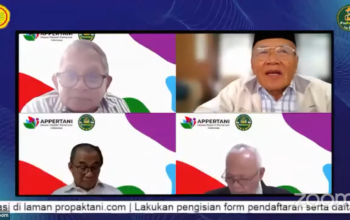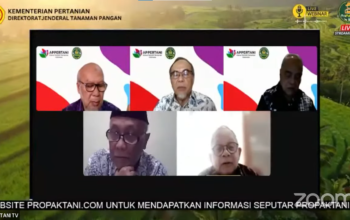ABOUT
Aliansi Peneliti Pertanian Indonesia (APPERTANI) is a non-profit scientific organization which affiliated with Forum Komunikasi Profesor Riset (FKPR) of the Agriculture of Republic of Indonesia. APPERTANI was founded on 25 November 2020 and validated on the Decree of the Minister of Law and Human Rights of the Republic of Indonesia Number AHU-0013016.AH.01.07 year 2020 on 7 January 2021.
APPERTANI establishes partnerships with domestic and foreign government and private institutions engaged in agriculture focused on accelerating research results implementation and technology transfer and innovation process.







